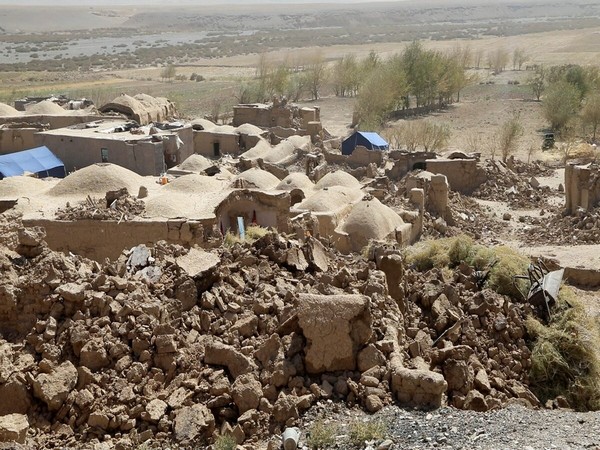Kabul [Afghanistan], June 8 (ANI): An earthquake of magnitude 3.8 on the Richter Scale jolted Afghanistan on Sunday, a statement by the National Center for Seismology (NCS) said.
As per the NCS, the earthquake occurred at a shallow depth of 10km, making it susceptible to aftershocks.
In a post on X, the NCS said, “EQ of M: 3.8, On: 08/06/2025 07:53:19 IST, Lat: 36.61 N, Long: 71.36 E, Depth: 10 Km, Location: Afghanistan.”
https://x.com/NCS_Earthquake/status/1931539410321121737
Shallow earthquakes like this one are more dangerous than deeper ones due to their greater energy release closer to the Earth’s surface. This causes stronger ground shaking and increased damage to structures and casualties, compared to deeper earthquakes, which lose energy as they travel to the surface.
Earlier on Saturday, an earthquake of 4.2 magnitude jolted the region, NCS said.
NCS shared details of the earthquake on X, “EQ of M: 4.2, On: 07/06/2025 01:05:55 IST, Lat: 36.50 N, Long: 67.82 E, Depth: 126 Km, Location: Afghanistan.”
https://x.com/NCS_Earthquake/status/1931076659714969665
Afghanistan has a history of powerful earthquakes, and the Hindu Kush Mountain range is a geologically active area where quakes occur every year, according to the Red Cross.
Afghanistan sits on numerous fault lines between the Indian and the Eurasian tectonic plates, with a fault line also running directly through Herat. Its location on several active fault lines along the collision zone between the Indian and Eurasian tectonic plates makes it a seismically active region. These plates meet and collide, causing frequent seismic activity.
As per the United Nations Office for the Coordination of Humanitarian Affairs (UNOCHA), Afghanistan remains highly vulnerable to natural disasters, including seasonal flooding, landslides and earthquakes.
These frequent earthquakes in Afghanistan cause damage to vulnerable communities, which are already grappling with decades of conflict and under-development and have left them with little resilience to cope with multiple simultaneous shocks, UNOCHA noted. (ANI)
Disclaimer: This story is auto-generated from a syndicated feed of ANI; only the image & headline may have been reworked by News Services Division of World News Network Inc Ltd and Palghar News and Pune News and World News
HINDI, MARATHI, GUJARATI, TAMIL, TELUGU, BENGALI, KANNADA, ORIYA, PUNJABI, URDU, MALAYALAM
For more details and packages














